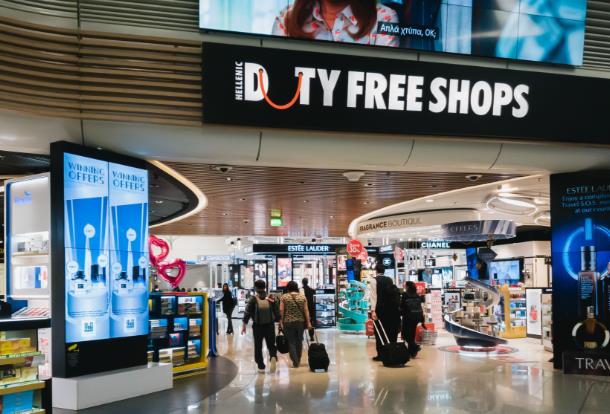The Chinese tourists
As sought-after spenders, Chinese tourists are a form of barometer for the travel industry of China and the world. Earlier this month, China Outbound Tourism Research Institute (COTRI) forecasted in a report that China’s outbound numbers will reach 154 million in 2018, which means China’s outbound tourism traffic has increased 2.5 times in a decade, from 44 million in 2008, and will be up 6.3% in a year, from 145 million projected for 2017.
While Hong Kong, Macau and Taiwan still claim the lion share of Chinese visitor arrivals, the rest of the world is also enjoying substantial growth in arrivals from China. As Chinese travelers travel to different corners of the world, they will turn niche destinations into popular ones before long, but where will they be exactly?
World Tourism Cities Federation’s studies show that Southeast Asian cities including Bangkok, Hanoi, Singapore, Kuala Lumpur, Bali and Manila are the top destinations for Chinese tourists, and natural scenery and local food are the biggest drawcards for them.
Hilton found that Chinese travelers prefer a human touch especially in getting inspirations for travel plans or when they need to resolve problems during the journey. Family comes first for leisure travelers, and transportation convenience is a deciding factor for business travelers. Chinese tourists love to share authentic experiences on social media. Wherever they go, they intend to enjoy a real escape from daily life and have unique experiences that they hope to share with others. This means OTAs and other players in the field should come up with better solutions, such as how to offer what they really want.
Major OTAs and Internet giants
While global OTAs are trying to localize in China, the domestic OTAs and internet giants in China are working to attract Chinese tourists by empowering the young generations, collaborating with business operators overseas and turning to innovative technologies.
On the subject of localization, Pepijn Rijvers, CMO of Booking.com, believed that localization is more about re-invention because "there are so many things which are very interestingly either better or different in China compared to the rest of the world." With its previously-established partnership with Ctrip and Priceline’s investment in Meituan, Priceline’s reinvention in vertical products and services in China is sure to ignite a fresh round of innovation and competition in the sector.
Meituan will begin to work with GURUNAVI, Japan's leading gourmet guide and a Michelin partner, from this month. GURUNAVI is planning to cooperate with five review-driven platforms in Asia to help travelers in Japan book restaurants online. Against Ctrip's rumored interest to invest in overseas restaurant booking platforms, competition between the two platforms is escalating on a global scale.

In the meantime, Tencent, another major investor in Meituan, has launched its WeChat CityExperience Mini Program in partnership with Dubai, London and Sydney, to enhance the overseas travel experience of Chinese travelers. Applications to recommend destination activities for tourists are probably not new, but the connection with WeChat Pay will make the program much more popular. Could there be further expansion on the initiative?
Tencent is not just working on overseas destination experiences, but also looking at local tourist attractions in China. The internet giant has teamed up with the Palace Museum in Beijing to jointly set up the Palace Museum-Tencent Innovation Lab to preserve traditional Chinese culture by creating forward-looking and replicable digital applications to protect, research and display cultural relics.
Latest financing rounds in China
Startups across the industry are facing both challenges and opportunities when tapping the huge market presented by Chinese tourists and exploring the possibilities underscored by OTAs and internet players. For the past two weeks, investors have announced fundraising for startups that specialize in bike-sharing, independent travel, customized tours and theme trips.
HelloBike merged with rival Youon in October in the first merger of China’s bike-sharing industry. HelloBike has since secured USD 350 million and is exploring second- and third- tier cities with efficient operation and maintenance and intelligent vehicle parking management. At the same time, the sector is awash with news on the tug-of-war between Ofo and Mobike. What will HelloBike armed with fresh funding bring to the bike-sharing business in China?
Mafengwo, a popular travel application in China serving independent travel, received USD 133 million from OceanLink, a fund backed by Temasek and Ctrip. The funds will be earmarked to reshape independent travel in China by offering increased user-generated content, more advanced application of analytics and improved travel guides and services. Mafengwo claimed it will achieve over RMB 10 billion on gross booking this year.
Banma Trip, a travel startup backed by Tuniu, also closed a financing round with an undisclosed sum. The firm was founded in 2016 and aims to provide high-quality mini-group tours (70%) and customized tours (30%) by re-inventing travel routes, transportation solutions, guide services and value-added activities.
Qmango, a leading Chinese B&B booking platform, has set up a RMB 500 million investment fund for B&B management companies and other related business. It intends to upgrade itself from a booking platform into a full-service platform following this round of financing.
Chinese tour operator DTJ Tours has announced the completion of a RMB 20 million Pre-A round of financing, hoping to spend the funds on cultural theme tours, upgrade travel products and integrate resources.
Zuotoujing, which provides group tours, customized tours, and C2C services for destinations in Tibet, Hong Kong, Bali and Japan, has received 8-digit funding. Apart from air tickets, hotels and neighborhood products, it is also working on convenient local transportation to further develop Tibet tours.




